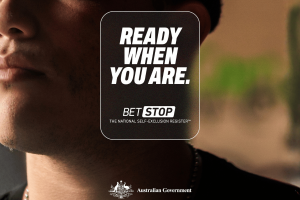Australia’s self-exclusion register greatly improves wellbeing for most participants, ACMA reports

New figures released by the Australian Communications and Media Authority (ACMA) show that 77% of people who are self-excluded from any form of online or phone wagering services have a much better quality of life.
The research, which was commissioned by the ACMA, also found that an improvement in mental health was registered by 79% of the participants, while 69% experienced better personal relationships with friends and family.
New survey results reveal that 77% of individuals who registered for self-exclusion from online and phone wagering services experienced an improved overall quality of life.
Find out more: https://t.co/MMVAnaEmjn pic.twitter.com/R078dLnllP
— ACMA (@acmadotgov) November 13, 2025
“We know online gambling causes a great deal of harm for too many in our communities,” said ACMA member Carolyn Lidgerwood following the release of the results.
“It is wonderful to see that the national self-exclusion register is having a positive impact. The stories shared with us are both moving and compelling.
“We want to make sure everyone who uses phone or internet gambling in Australia is aware of their options for self-exclusion.”
The National Self-Exclusion Register has since reached a new milestone as more than 50,000 Australians have self-excluded from gambling since the program officially launched in 2023.
There is still work to be done for gamblers in Europe, however, as a study in Norway links gaming in adolescents with problems later on in life.
Australia’s self-exclusion program has grown exponentially in recent yearsBetween August 2023 and June 2024, BetStop, Australia’s national self-exclusion registry, saw nearly 26,000 registrations.
The service, which is free, allows users to block access to all online betting and telephone services in the country. By the end of June 2024, 25,972 people had signed up to the service.
With more than 50,000 reported in the most recent survey, this service is steering more and more individuals away from further harm caused by gambling.
This comes after the Australian game industry trade body IGEA cracked down on how video games are classified regarding gambling-like content such as loot boxes and skins.
Games such as Pokémon and Animal Crossing were given a minimum classification of M (mature), which ensures only players age 15 or older. This isn’t legally enforced, however.
“The changes will align video game classifications with age-based restrictions that are already in place in the real-world,” said the IGEA at the time.
Featured image: BetStop / Australian Government
The post Australia’s self-exclusion register greatly improves wellbeing for most participants, ACMA reports appeared first on ReadWrite.
